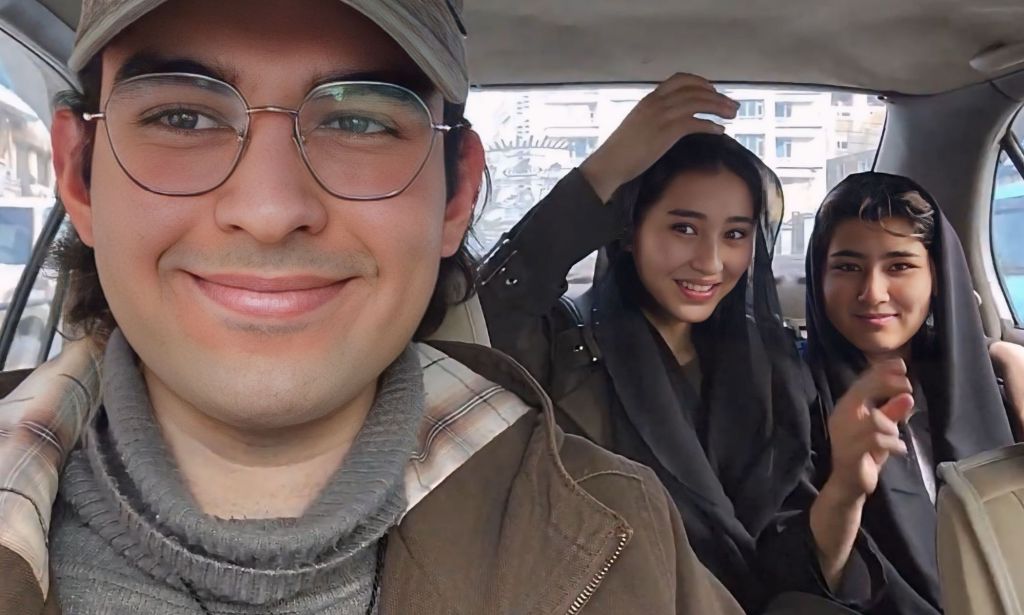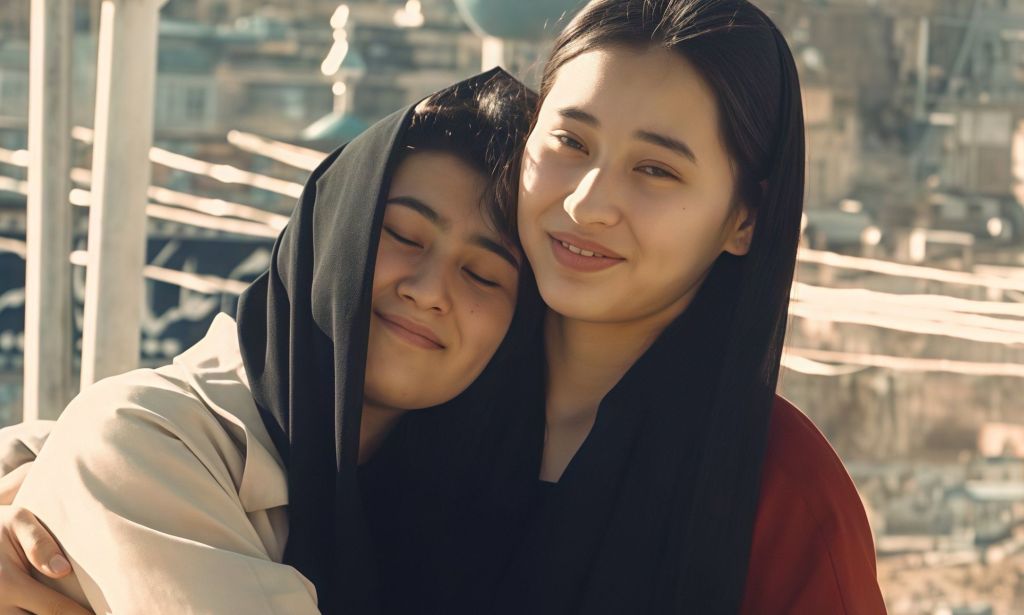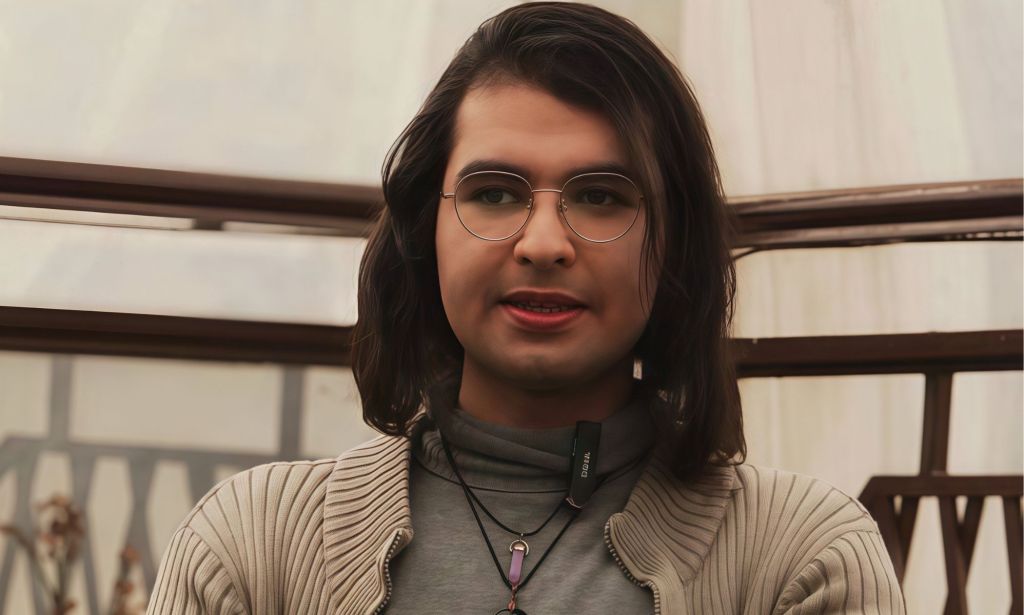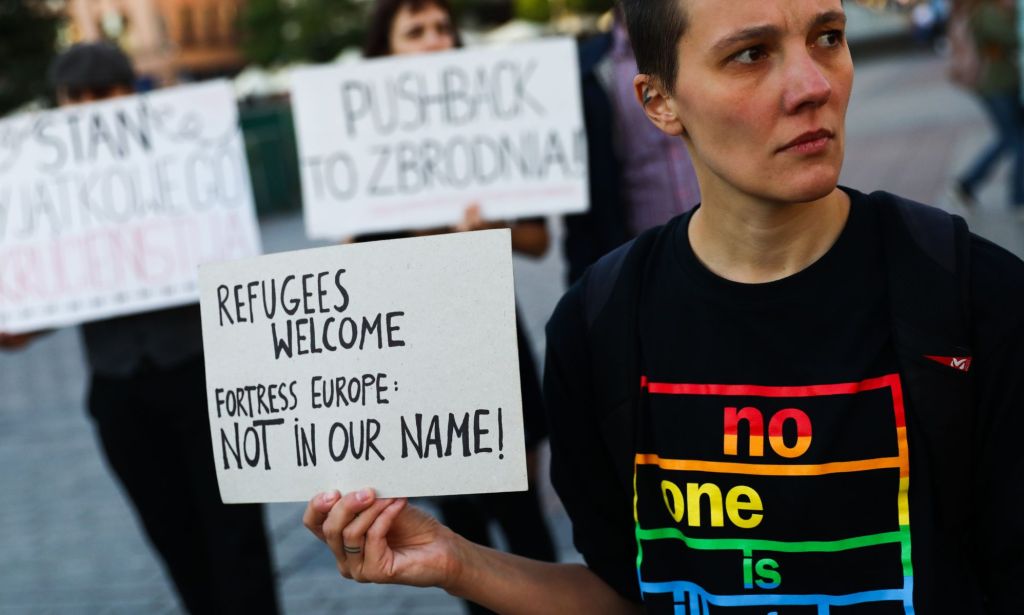
Parwen and Maryam tried to escape Afghanistan, now Maryam is in ‘grave danger.’ (Supplied)
Thursday 20 March has become an important date for Parwen Hussaini. It was the day she was expecting to escape the terror of the Taliban. Now, it remains the last time she saw her girlfriend.
After months of planning, 20-year-old Parwen, alongside 19-year-old partner Maryam Ravish and 23-year-old friend Maeve Alcina Pieescu, tried to escape the persecution they had faced in Afghanistan because of their sexuality.
While collecting her tickets for what would be one of the most important flights of her life, Parwen recalls hearing Maryam and Maeve respond to a call telling them that plans had changed: they were to go through the VIP terminal instead. Anxious at this deviation from the original plan, Parwen reluctantly made her way through Kabul International Aiport towards their flight.
When she boarded the Mahan Airlines plane to Iran alone, she says she burst into tears. She knew they hadn’t made it through.

Now, some two weeks later, Maryam and Maeve remain in jail after being detained by the authorities, who claimed they found evidence of LGBTQ+ content on their phones.
Speaking to PinkNews through translator and human rights activist Nemat Sadat, Parwen says her partner and friend are being interrogated and tortured daily.
“They have been tortured a lot,” she says. “They are throwing hot water at them and beating them unconscious, and when they would come back conscious, they start interrogating them to get them to confess things about other LGBT people.“
‘We never thought that this situation could fall before us’
Afghanistan is the second-worst place in the world to exist as an LGBTQ+ person, according to Equaldex. Identifying as LGBTQ+ is punishable by a “long-term prison sentence.” Under Sharia law, the death penalty is encouraged.
Parwen, Maryam and Maeve decided to flee to Iran before seeking asylum in the UK or Ireland.
Working with human rights group Roshaniya to secure their tickets and visas, the trio paid a go-between $2,000 (£1,500) to make it to their flight. The money was to ensure they passed safely through four different checkpoints at the airport.

“He gave us assurance [this was] gonna happen,” she says. “We never thought this situation could fall before us.”
After the change of plan, things began to fall apart. Maeve, who is a trans woman but whose passport still says “male”, was advised to act as Maryam’s cousin and chaperone. Sadat says that made “no sense” because Maryam is ethnically Hazara, while Maeve is Tajik.
“Afghans would know the difference. It would even say on their identity card. It would say their ethnicity,” he says, before claiming that the go-between double-crossed them to evade a prison sentence.
Afghanistan officials investigating Maryam and Maeve
An official investigation into the pair began last week. The Taliban refuse to speak to anyone other than Maryam and Maeve’s family, who have kept Parwen and Sadat informed.
Sadat predicts that Maryam could be sentenced to six months in prison, while Maeve’s punishment could be more severe after she allegedly admitted under torture that she was not a follower of Islam.
“I don’t know what’s going to happen,” he admits. “We just don’t know. They could lose an arm or a leg, they could say six months or one year in prison. They could say death penalty, we have no idea.”

No official charges have been announced yet but, according to Sadat, the authorities are trying to “drum up” convictions against the pair.
If she could speak to her partner again, Parwen says she would plead: “Don’t surrender. This is our right. This is your right to be free.
“We’re working night and day… we’re gonna do everything we can to get you free.”
Sebastian Rocca, the founder and chief executive of Micro Rainbow, a UK-based organisation that supports LGBTQ+ asylum seekers and refugees, told PinkNews that the news of Maryam and Maeve’s arrest wasn’t surprising.
“We have received many reports of the Taliban trying to trap people,” he said. “We are talking about atrocities, we’re talking about torture. Many are in hiding, running out of food and living in fear of discovery.
“Some have been forced to flee their after the Taliban came for them. Others send us harrowing evidence of torture. Their situation is dire. When they run out of money and food, they have no way to survive. They would rather kill themselves than be killed by the Taliban.”
‘I am human and I want to live’
An email shown to PinkNews detailed the plight of another LGBTQ+ Afghan. They said they had been beaten by the Taliban and lost their boyfriend and neighbour to the authorities. With no one to turn to, they ran away.
“The Taliban do not consider LGBTQ+ people as human beings, but I am human and I want to live. I am begging you to save my life.
Such emails are nothing new for Rocca, who said: “Since the Taliban’s return to Kabul in 2021, Micro Rainbow has supported the integration of over 100 LGBTQI refugees from Afghanistan.

“Newly arrived refugees have gained essential knowledge about the UK housing market, the NHS and the education system. They have improved their employability skills, accessed sexual-health care and talking therapies, and, crucially, secured stable and suitable housing.”
However, he went on to say: “We have witnessed a sharp decline in the number of LGBTQI people from Afghanistan reaching the UK. This is not a sign of improved safety, it is a reflection of the near-impossible journey they undertake to escape.”
The UK offers two routes for refugees from Afghanistan seeking asylum: the Afghan Citizens Resettlement Scheme and the Afghan Relocations and Assistance Policy. The former focuses on resettlement, while under the latter those who worked with the UK government are relocated. Both face criticism for being too slow, and for failing to address the risks of immigration.
Those lucky enough to escape are left traumatised, and Rocca urged the public to help in any way they can, saying: “We all have a duty to speak up. Be vocal with family and friends, on social media.
“Those who have power should look at the legacy they want to leave behind and what role a country like the UK can have. Demanding safe routes is something we can ask our local MPs to raise questions about.
Share your thoughts! Let us know in the comments below, and remember to keep the conversation respectful.
How did this story make you feel?
